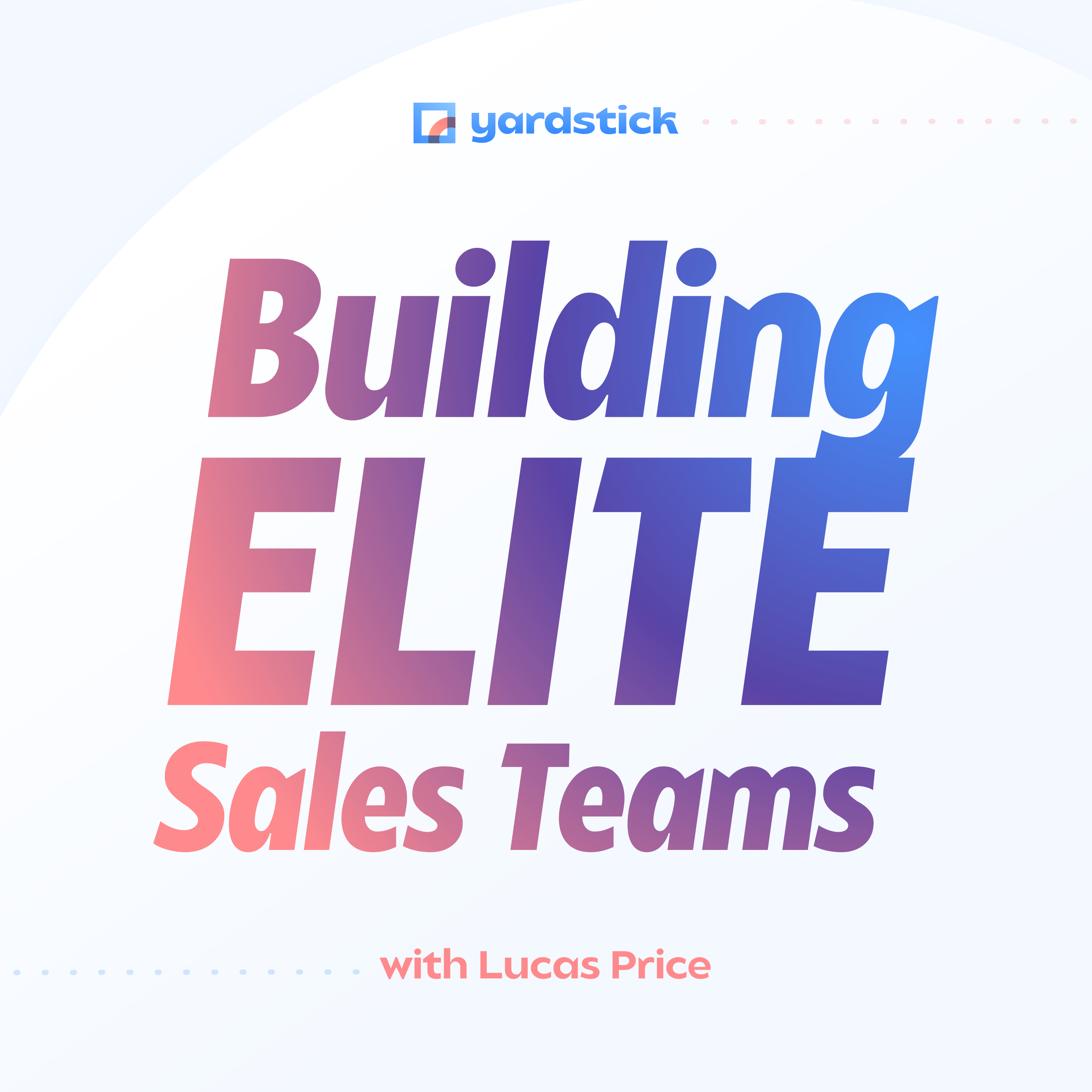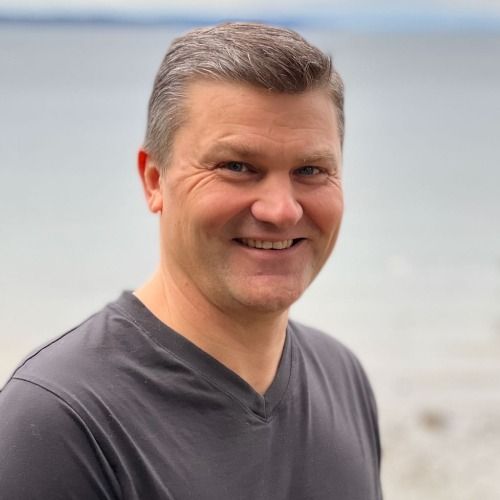Episode 61
BEST Snippet - Mastering Sales Enablement and Continuous Improvement - Brian Weiner
Summary
Lucas Price talks with seasoned sales leader Brian Weiner on building elite sales teams. They dig into crucial aspects like prioritizing people, transparent communication, fostering accountability, and nurturing an inclusive environment. Brian sheds light on evaluating talent, the significance of intellectual curiosity, proactivity, and coachability. They also discuss effective recruitment strategies and promoting internal growth. This episode offers practical insights into achieving ramp-time reductions and methods for maintaining team motivation and engagement. Perfect for those keen on refining their sales team dynamics and leadership approaches.
Take Aways
- People-Centric Leadership: Investing in and supporting your team is crucial for successful scaling and implementing changes.
- Rigorous Hiring Practices: Understanding the qualities and skills required for roles and ensuring clear communication with recruiting teams.
- Internal Promotions: Promoting internally can be more effective as internal candidates are familiar with the company culture and processes.
- Objective Evaluation: Creating and utilizing objective criteria for evaluating candidate suitability and prospects for promotion.
- Intellectual Curiosity & Proactivity: Seeking team members with a thirst for knowledge, problem-solving skills, and the ability to take initiative.
Learn More: https://www.yardstick.team/
Connect with Lucas Price: linkedin.com/in/lucasprice1
Connect with Brian Weiner: linkedin.com/in/brianmweiner
Subscribe to our YouTube Channel: https://youtube.com/playlist?list=PLR0BMWoMgPMcHJ4yLLSUhbuafMmdhJTSy&si=tzQz7NFvDdT8Kj8Q
Connect with Dr. Jim: linkedin.com/in/drjimk
Full Episode: https://bit.ly/46L4RKU
Mentioned in this episode:
BEST Snippet Intro
BEST Snippet Outro
Transcript
Brian has been a sales leader for over seven years, leading SMB, mid market and enterprise sales teams and customer success. Martech and cyber security spaces. Brian, what else should our listeners know about you?
[:So obviously a lot of that will come into play in our conversation today around how I kept those principles intact, but happy to be here. Thanks for having me.
[:[00:01:05] Brian W: Yeah, I think first and foremost, it's going to start and end with the people. You cannot build a strong team. You can't scale it. You surely can't implement change and process, et cetera, if you don't have the right people. And so for me as a leader, I think something that I've just always believed in outside of just sales as a whole is.
You need to invest in your people, need to treat them like people and support them. And so throughout my career cause surely there's no manual for how to be a good leader. You learn by doing and by watching the people around you. I always try to look at it from the other side when I was, an individual contributor or how I've been managed in the past.
p role, it started with, let [:And I think I've tried to build on that throughout my leadership career.
[:[00:02:23] Brian W: Yeah, I think from the very beginning, as a leader, especially if you're hiring one or a hundred and understanding of what good looks like, what are you looking for? I think there's so many experience I've had and also just heard from other people in our space and other leaders where, I'm moving so fast.
We're just hiring like crazy. And what ends up happening is you spend a ton of time bringing people on. It's a huge investment. And ultimately they don't work out for a variety of different reasons. For me, I think that there's a very baseline understanding of, this is the job description and getting a full understanding of what that looks like and what it entails and what's important to you as a leader.
Are we a heavily outbound [:I think it's about if there's a pre existing team. For me, when I've come into organizations. Understanding what they've done that works, what doesn't taking the best of the best. So if there's an embedded sales team, surely you don't need to come in and reinvent the wheel, but you need to understand what's working and how can you replicate that?
Obviously, that helps you from a scaling perspective. so I think it starts with understanding how and what you're looking for. And I think across the board, it comes down to communication, working with your recruiting team, making sure that you've articulated those pieces clearly to them so that you're not spinning your wheels on bringing people in that don't fit that criteria.
u're selling to, the type of [:[00:04:10] Lucas Price: I love that. I think that a lot of times the reality is that most of the job descriptions out there are too generic to really understand exactly what you need in a candidate. And one of the ways that I like to try to help bring clarity to that process is to think about what are the goals of this role and how are they going to accomplish those goals and get that written down for the people that are part of the hiring team so that like a little thought experiment, like a year from now, two years from now, what would make me say this was a successful hire or conversely, what would make me say that it was not a successful hire?
And so to go deeper, get more specific than the job description so that, which I think is, speaks to what you're talking about in terms of getting a lot clearer on what you're actually looking for.
[:So there's can theoretically be an evolution of what the role entails. So I think pieces for me, because in my career, I've been many opportunities where I've been really working with, 10 years vets seasoned, they just need someone to help remove obstacles and guide. I've typically worked with.
Earlier career sellers that, have the right personality traits, but need that guidance and support. And so for me it's intellectual curiosity. You need to have someone that has a thirst for knowledge. They're always trying to learn. You don't need to be an expert, but you need someone that's going to come in, especially, and you can usually tell us in the first 30 days who those people are.
But. I need to learn. I want to absorb as much as possible because I want to be able to explain and be an expert in this field. Proactivity is really important. If someone's coming to you and just constantly asking you, tell me the answer. I want someone that's going to go look and find and turn over some stones before they come to me.
[:That's It's a lot of work recruiting, hiring, interviewing, and then not that, but just the investment in onboarding and getting them up to speed.
[:[00:06:46] Brian W: So that's the tougher question, right? And I think that there's a couple of different ways to approach it. I think where I've been fortunate where I've worked in organizations where creating a career path and career pathing is been a [00:07:00] big priority for the organization. So I think in that type of instance.
You can actually evaluate those pieces while they're in SDR as an example and understand, how they're, taking on those pieces. But I think going back to what I said around some of the criteria, I think the more objective you can create a more objective process you can create around identifying those pieces.
We've had a rubric in one of my prior organizations where talk to me about something new you've taught yourself in the last 30 days. We need to get real life examples. I think that. Of course, interviewing an external person for a role, people are really well trained on how to interview at this date in this day and age as a wealth material.
So it's harder to vet those pieces out, but which is why I tend to lean towards let's career path, let's bring someone in that's earlier stage that can learn our business. So I think that there's always risk when you bring someone in there, actions speak louder than words.
eract with them, either as a [:[00:08:06] Lucas Price: Good reminder when you're building your organization and you think like, all right. We're trying to find top performers, we're trying to find consistent performers and a certain percentage of them are going to come, be developed internally.
And and you always should keep in mind, Hey, I don't have to find everyone if we have the right development program, if we're building the right kind of bench.
[:So they get a sense of what the role looks like. And then you're filling in the gaps. Once they get promoted, if they've demonstrate those capabilities versus. iNterview as best you can. And then there's somewhat of an unknown quantity when they come in the door. So to your point, yes, you want to [00:09:00] have a balance of both.
I think always, because at the same time, external experience in that perspective, when you think about the overarching team is invaluable to the growth of the organization, to the team itself, how it operates. Being in another sales org and understanding what's worked there can surely help impact it.
But, strictly from a hiring perspective, I think if you're looking for probability of success, I would say if you've got the right framework around it, my preference would be towards internal promotion and growing from there.
[:What's some of the practical advice that you'd give?
[:You want to be able to promote the best person or individual depending on the type of business you're in. I think the key metrics that are typically important, you talk about, overall work ethic and how you define that is that just number of meetings booked opportunities created the quality of the meetings.
I would surely be speaking with their frontline manager, or if, if you run that team or someone else, understanding. Organization skills, time management, going back to actually some of the things we just spoke about a few minutes ago, that JD or that objective criteria you're going to be communicating with your recruiting team should be a real guiding light for you in building those pieces out.
So it starts with getting that key criteria down. Some of the soft criteria as well around, team leadership, the willingness and to support in certain areas. I think showing if someone's really hungry and interested in the opportunity command of the product, understand of it, have they been proactive in seeking support and help?
ble or reaching out to other [:This has to be objective. You can't be wishy washy around it because what ultimately will end up happening in your example if you don't have a very clear and concise criteria and timeline around what that looks like, you actually run the risk of really alienating one of the employees that could be potentially eligible.
[:[00:11:40] Lucas Price: Great stuff, Brian. Thanks for being with us today.



